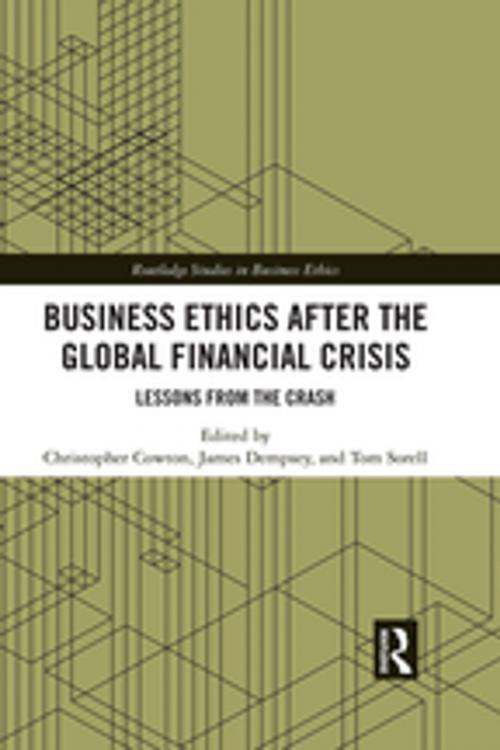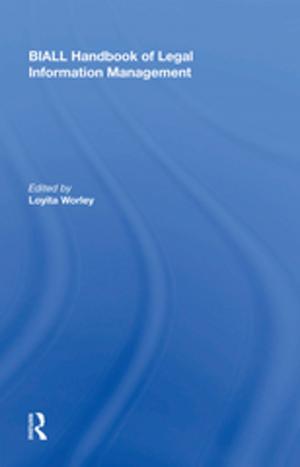Business Ethics After the Global Financial Crisis
Lessons from The Crash
Business & Finance, Finance & Investing, Corporate Finance, Business Reference, Business Ethics| Author: | ISBN: | 9780429825880 | |
| Publisher: | Taylor and Francis | Publication: | January 31, 2019 |
| Imprint: | Routledge | Language: | English |
| Author: | |
| ISBN: | 9780429825880 |
| Publisher: | Taylor and Francis |
| Publication: | January 31, 2019 |
| Imprint: | Routledge |
| Language: | English |
The global financial crisis (GFC) that began in 2007 concentrated attention on the morality of banking and financial activities. Just as mainstream businesses became increasingly defined by their financial performance, banks, it seemed, got themselves – and everyone else – into trouble through an over-emphasis on themselves as commercial enterprises that need pay little attention to traditional banking virtues or ethics. While the GFC had many causes, criticism was legitimately levelled at banks over the ethics of mortgage creation, excessive securitisation, executive remuneration, and high-pressure customer sales tactics, amongst other things. These criticisms mirror those that have been levelled at the business more generally, particular in the last decade, although the backdrop provided by the GFC is more dramatic, and the outcomes of supposed wrongdoing more severe.
This book focuses on business ethics after the GFC; not on the crisis itself, but how we should respond to it. The GFC has focused minds on the proper role of ethics in the understanding and conduct of business activity, but it is essential to look beyond the crisis to address the deeper challenges that it highlights.
The aim of this volume is to present examples of the latest philosophically-informed thinking across a range of ethical issues that relate to business activity, using the banks and the GFC – the consequences of which continue to reverberate – as a point of departure. The book will be of great value to researchers, academics, practitioners, and students interested in business, ethics in general, and business ethics in particular.
The global financial crisis (GFC) that began in 2007 concentrated attention on the morality of banking and financial activities. Just as mainstream businesses became increasingly defined by their financial performance, banks, it seemed, got themselves – and everyone else – into trouble through an over-emphasis on themselves as commercial enterprises that need pay little attention to traditional banking virtues or ethics. While the GFC had many causes, criticism was legitimately levelled at banks over the ethics of mortgage creation, excessive securitisation, executive remuneration, and high-pressure customer sales tactics, amongst other things. These criticisms mirror those that have been levelled at the business more generally, particular in the last decade, although the backdrop provided by the GFC is more dramatic, and the outcomes of supposed wrongdoing more severe.
This book focuses on business ethics after the GFC; not on the crisis itself, but how we should respond to it. The GFC has focused minds on the proper role of ethics in the understanding and conduct of business activity, but it is essential to look beyond the crisis to address the deeper challenges that it highlights.
The aim of this volume is to present examples of the latest philosophically-informed thinking across a range of ethical issues that relate to business activity, using the banks and the GFC – the consequences of which continue to reverberate – as a point of departure. The book will be of great value to researchers, academics, practitioners, and students interested in business, ethics in general, and business ethics in particular.















